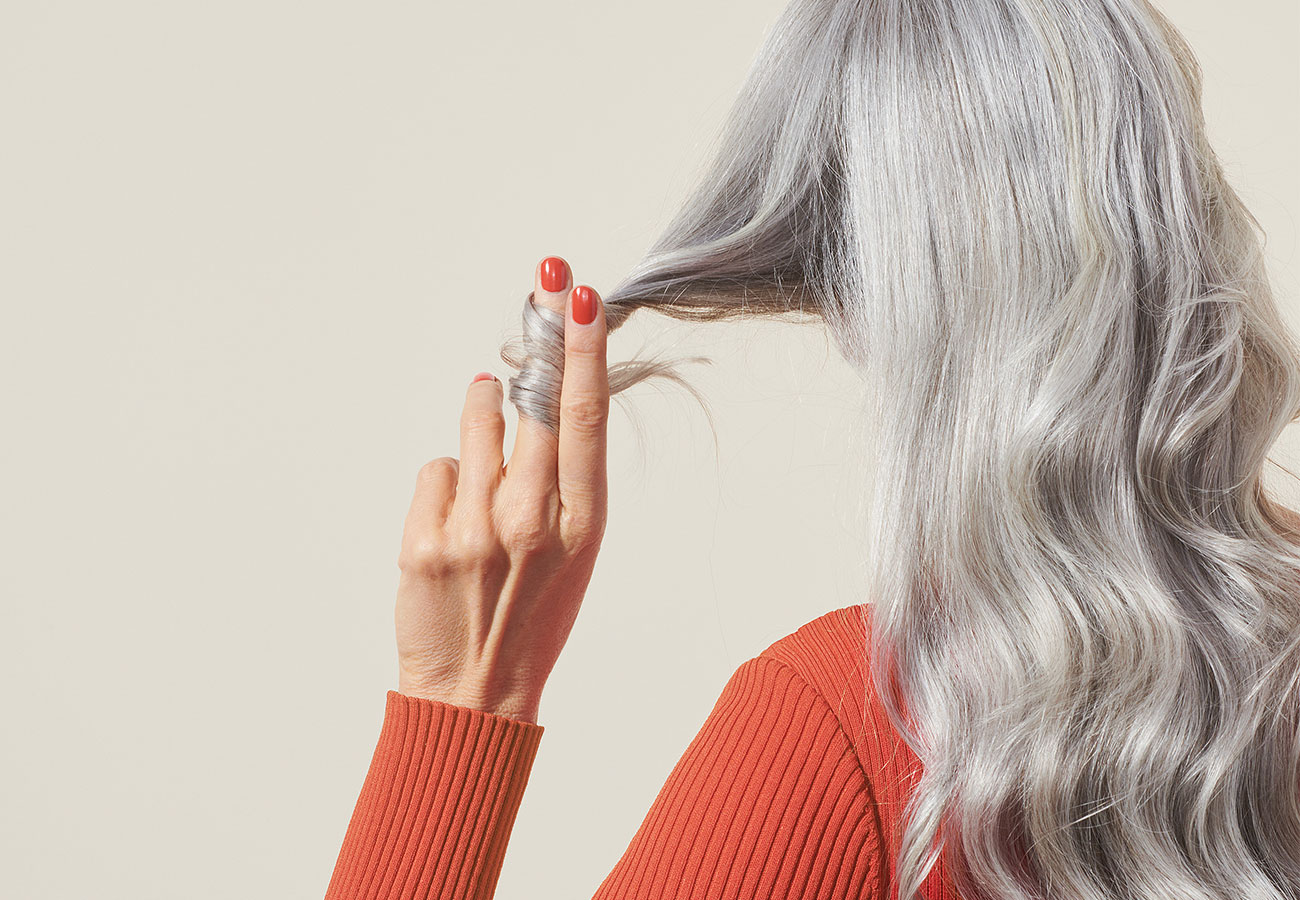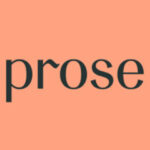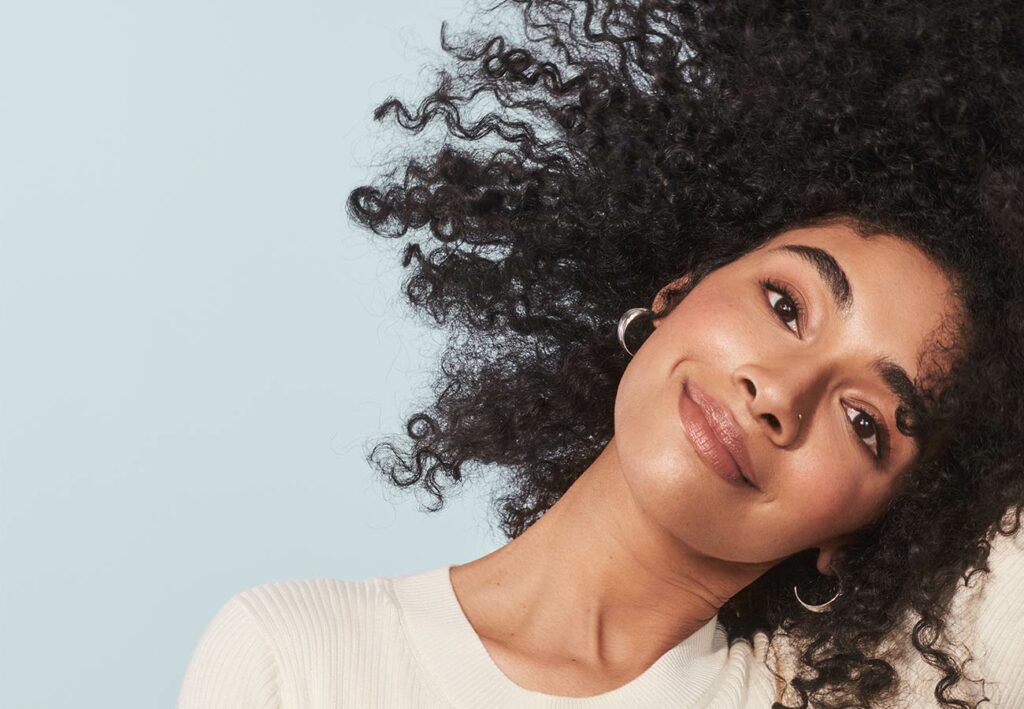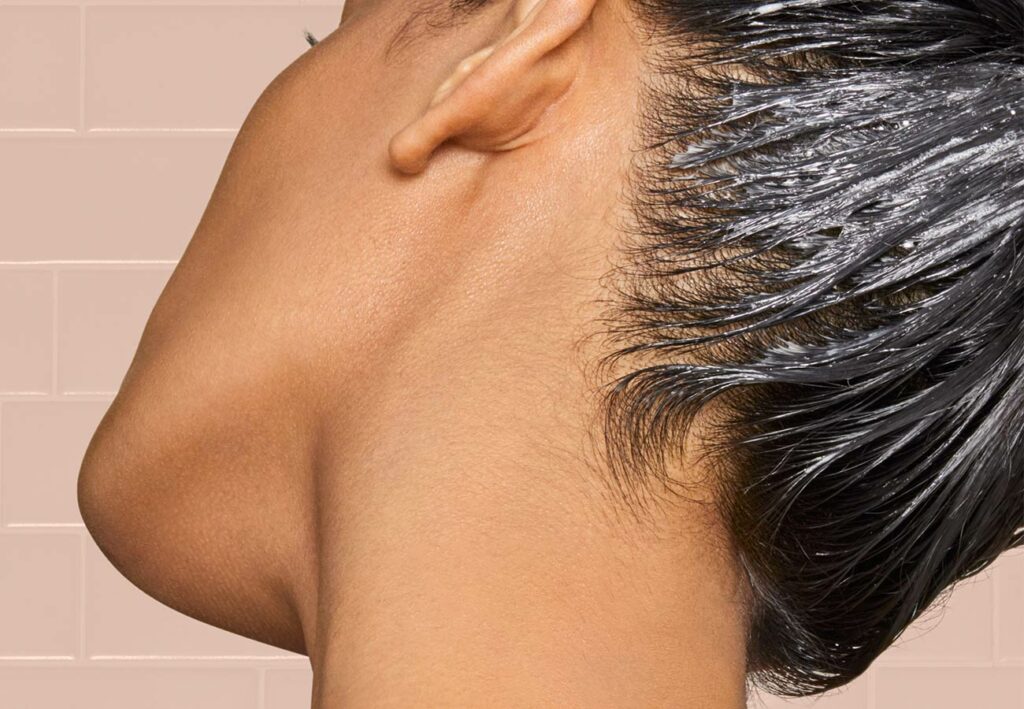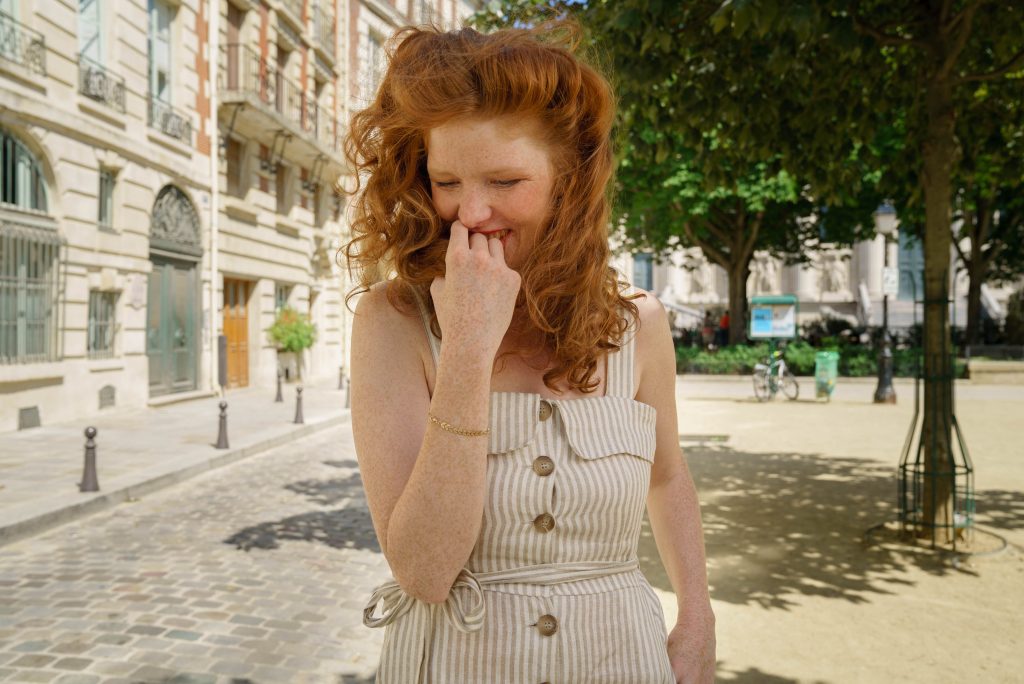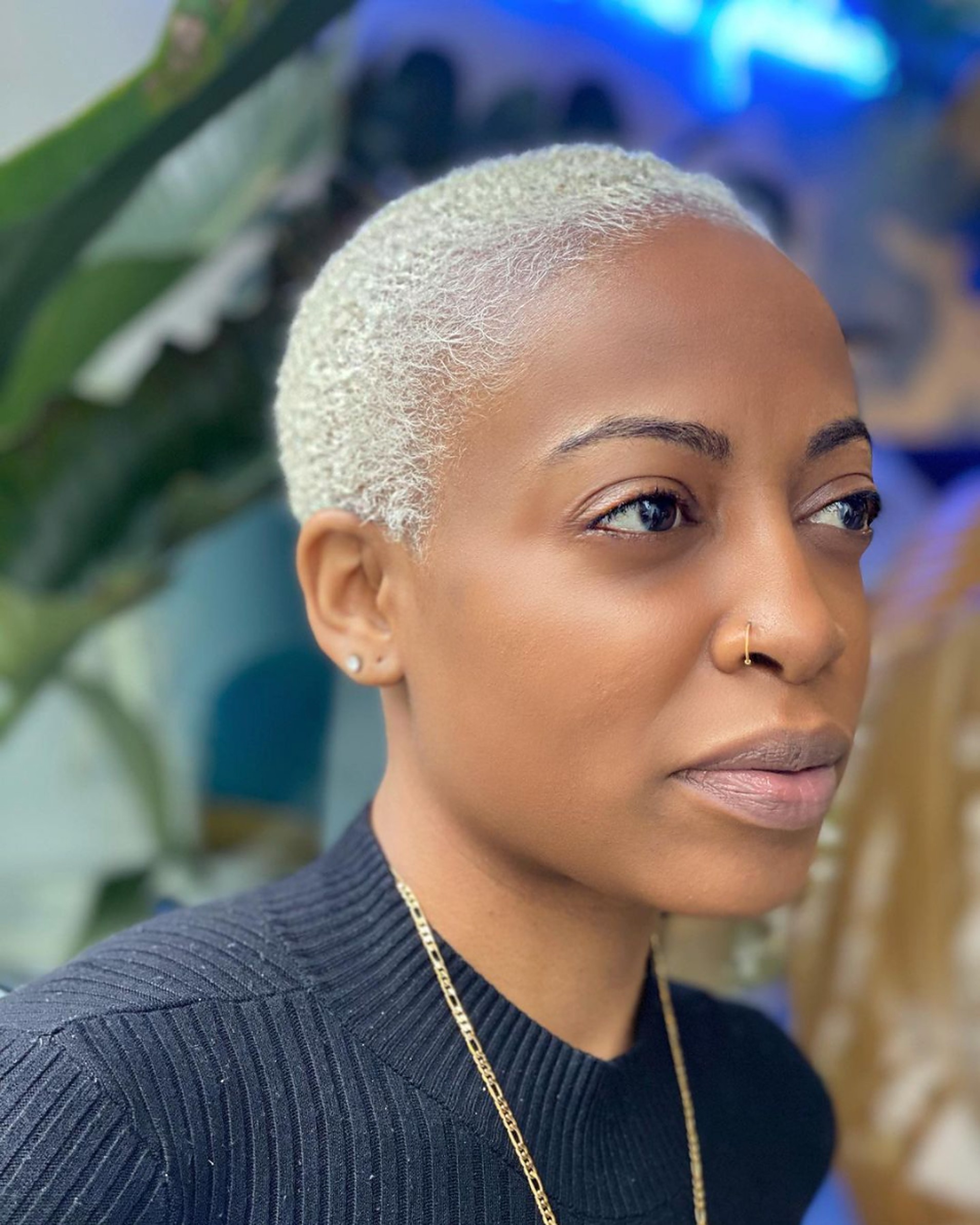The hair growth cycle
Hair goes through a specific growth cycle. The anagen phase is the growth part of the cycle. The next phase is the catagen phase, in which hair follicles shrink and hair growth slows. This is followed by the telogen phase, when hair rests before falling out. (The exogen phase is considered the tail end of the telogen phase, and during this phase hair sheds from the scalp.) Each strand of hair isn’t necessarily in the same phase at the same time: In normal conditions, 85% to 90% of hair is in the anagen phase, while 1% is in catagen phase, and the rest of the hair (around 10% to 15%) is hanging out in the telogen phase.
On any given day you may shed between 70 to 100 hairs—but shedding more than 100 hairs a day for a period longer than a few weeks is considered a red flag, according to the Menopause Review study cited above. Excess shedding can be caused by stress, illness, or other physiological conditions, like menopause.
What happens to your hair during menopause
Estrogen and progesterone are female sex hormones that keep hair in the anagen phase, making it grow faster and stay on your head longer. Estrogen and progesterone levels are very high during pregnancy, which is why pregnant women often have thick, gorgeous hair. When estrogen and progesterone levels return to normal after the baby is born, all that extra hair starts to shed.
During menopause, estrogen and progesterone levels decrease. These hormones, which are on standby during your fertile years in case you become pregnant, are no longer needed, so your body churns out less of them. This means your hair starts to spend less time in the anagen (growth) phase. Adding to the problem: Male sex hormones called androgens increase during menopause, and androgens shrink hair follicles. Smaller hair follicles cause hair to grow thinner and more fragile—and to fall out faster. Research in the British Journal of Dermatology sums up the overall effect. In a study of pre- and postmenopausal women without alopecia (a disease that causes hair loss unrelated to menopause), menopause significantly influenced hair’s condition, specifically hair growth rate and hair diameter, especially in the frontal scalp. Androgens can also increase hair growth on other parts of the body, particularly the face, which is why you may start to notice stray hairs growing on your chin while you’re losing hair on your head.
How to boost hair growth
1. Keep the hair you have
Avoid shampoos that contain sulfates, as they can strip hair of its natural oils which can lead to breakage. Instead look for hair products that contain biotin (aka vitamin B7), which coats each strand of hair, increasing its diameter and boosting strength. Biotin also moisturizes the hair, making it easier to comb and brush (no yanking!), preventing breakage. Also, search ingredient lists for antioxidants, particularly vitamin E, which protects hair from free radical damage, that can contribute to breakage and thinning. Biotin and vitamin E are found in Prose products, including the pre-shampoo scalp mask and custom shampoo.
2. Use heat tools sparingly
Tools like hair-dryers, curling irons, and straightening irons can dry out and damage hair, making it appear even thinner (not what you want when you are already dealing with menopause-induced hair loss). Shampooing daily can also dry out hair and nudge off extra strands, so try washing your hair every other day. If hair starts to feel limp and greasy, use dry shampoo to cleanse and refresh between shampoos.
3. Consider your diet
Eat a diet rich in important nutrients that nurture hair growth and health. For example, broccoli, red peppers, kale, kiwi, brussels sprouts, and oranges are full of vitamin C, which wards off breakage. Protein-rich foods like Greek yogurt, peanut butter, lean meats, and eggs (which also contain biotin) not only build strong muscles, but strong hair strands, too. Fish like salmon and trout, as well as walnuts and flaxseeds, are packed with omega-3 fatty acids, which promote scalp health. Nuts and seeds are good sources of biotin, and also contain zinc and selenium. Your body can’t make zinc and selenium, so you have to get them from food—and research in Dermatology and Therapy shows that low levels of these nutrients are associated with hair loss.
Why you need a hair supplement
Our new custom Root Source™ supplements contain our proprietary PureCatalyst™ complex which is a blend of natural ingredients, including millet and coriander oil, which have been proven to stimulate hair growth. Other important ingredients in our custom Root Source™ supplements include zinc (which improves scalp health and helps prevents shedding); vitamin B12 (involved in bringing oxygen to the tissues that build hair), and vitamin B6 (helps incorporate cystine, an amino acid, into hair follicles) Then there are ingredients like grape seed extract (an antioxidant), acerola extract (controls shedding), and horsetail extract (for thickness).
The Prose 2-step hair growth program simply entails taking two Root Source™ supplements once a day, preferably with food. Capsule one contains ingredients to balance the scalp, and capsule two contains PureCatalyst™ to get hair growing again. In a study in which 69 subjects followed the Prose 2-step hair growth program for three months, 93% saw improved hair growth, 90% saw reduced breakage, and 90% saw improved overall hair appearance.
Wrap up
With all of the physical and mental changes that come along with menopause, your hair should be the least of your worries. Combining the easy Prose 2-step program with a healthy lifestyle can give you thick, young-looking hair—no matter how old you are, or where you are in the menopause process.

